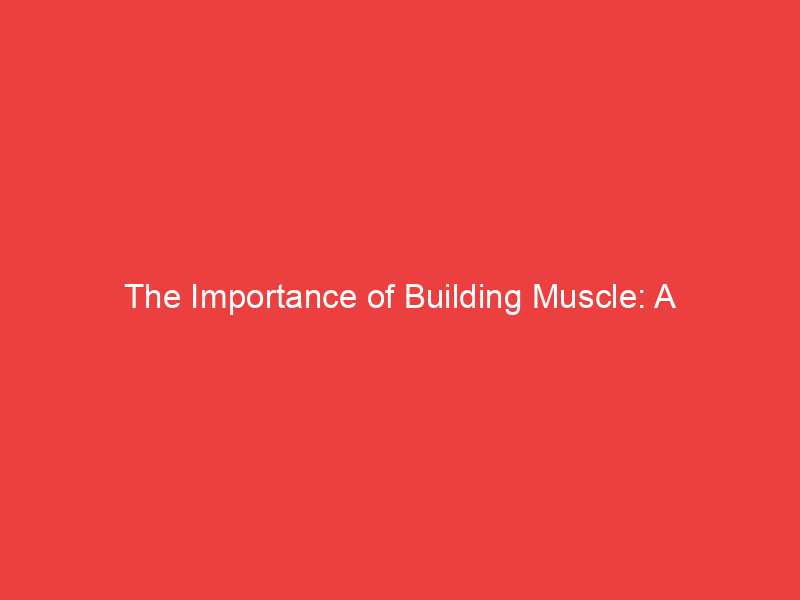Introduction
Building muscle is a key component of overall physical fitness and plays a crucial role in maintaining optimal health. While many people associate muscle building with bodybuilding or professional athletes, it is essential for individuals from all walks of life to engage in strength training exercises. In recent years, the significance of building muscle has gained widespread recognition due to its numerous benefits beyond just enhancing physique.
- Health Benefits:
Building muscle offers various health advantages that go far beyond aesthetics. Firstly, increased lean muscle mass helps boost metabolic rate, enabling the body to burn more calories even at rest. This can be particularly beneficial for individuals aiming to maintain or lose weight.
Furthermore, regular strength training aids in improving bone density and reducing the risk of osteoporosis later in life. It also enhances joint stability, thereby mitigating the chances of injuries by strengthening surrounding tendons and ligaments.
- Functional Strength:
Muscle growth not only improves aesthetics but also provides functional strength that translates into everyday activities and sports performance alike. Engaging in resistance training helps develop stronger muscles which are essential for performing day-to-day tasks more efficiently – whether it’s lifting heavy objects or simply carrying groceries up a flight of stairs.
Additionally, increased muscular endurance allows individuals to sustain prolonged physical exertion without experiencing excessive fatigue or premature exhaustion during recreational activities like hiking or playing sports.
- Enhanced Overall Performance:
For athletes across different disciplines – from runners and swimmers to basketball players and gymnasts – developing muscular strength is indispensable for achieving peak performance levels. Stronger muscles enable faster sprinting speeds, higher jumps, better agility, improved balance, enhanced coordination,and reduced injury risks.
Moreover, having well-developed muscles contributes significantly towards maximizing power output during athletic endeavors such as weightlifting or sprinting competitions.
- Metabolic Health:
Building muscle has a profound impact on metabolic health, particularly regarding insulin sensitivity and blood sugar regulation. Increased muscle mass aids in proper glucose metabolism, reducing the risk of developing type 2 diabetes and improving overall glycemic control.
Furthermore, strength training promotes better cardiovascular health by lowering blood pressure levels and improving lipid profiles. It also helps combat age-related decline in metabolic rate, which is commonly associated with loss of muscle mass over time.
- Psychological Well-being:
Engaging in regular resistance training not only benefits physical health but also plays a crucial role in promoting mental well-being. Physical exercise stimulates the release of endorphins – chemicals responsible for feelings of happiness and euphoria – leading to reduced stress levels, improved mood,and enhanced cognitive function.
Additionally, building muscle contributes to increased self-confidence and self-esteem as individuals witness their own physical capabilities progressing over time through consistent effort and dedication.
Conclusion:
Building muscle goes beyond mere aesthetics; it is pivotal for maintaining optimal health at various stages of life. The numerous benefits associated with muscular development encompass improved metabolic health, functional strength for everyday activities,reduced injury risks during sports performance,and enhanced psychological well-being.Adding resistance training exercises into one’s fitness routine can lead to transformative changes that positively impact both body and mind.
Ultimately, incorporating regular strength training sessions into your lifestyle will not only help you achieve your desired physique but also pave the way towards a healthier future filled with vitality and wellness. So why wait? Start building those muscles today! Please visit here building muscle for more information.

